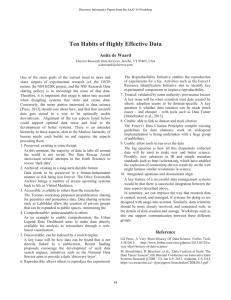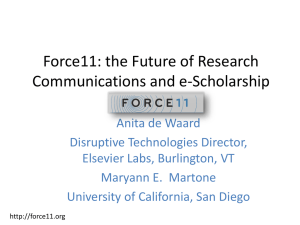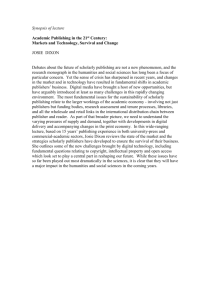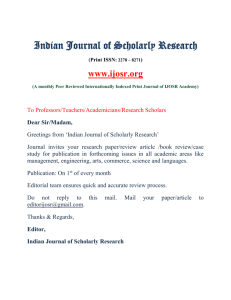force11_manifesto
advertisement
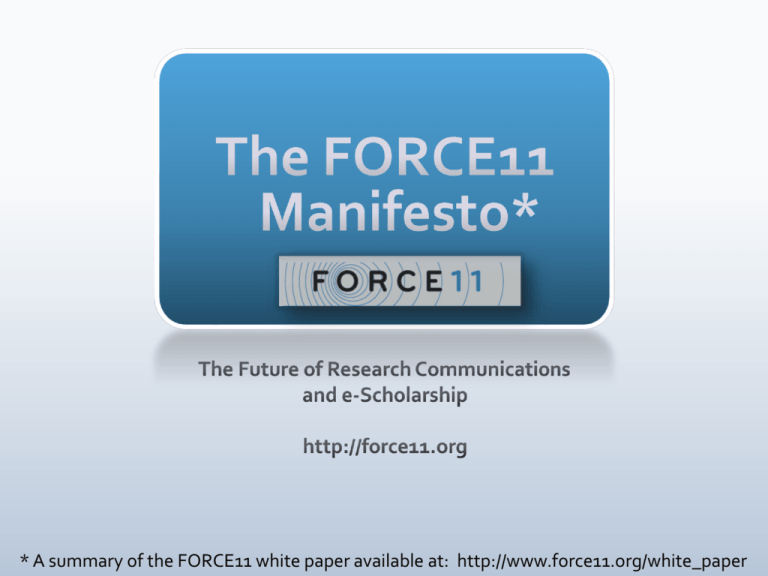
* A summary of the FORCE11 white paper available at: http://www.force11.org/white_paper http://force11.org Organizers: Ivan Herman, Ed Hovy, Anita de Waard, Tim Clark, Phil Bourne, Cameron Neylon Outcome: FORCE11 Manifesto*: http://www.force11.org/white_paper *This work is licensed under a Creative Commons By 3.0 License, with attribution to Force11. “One must no longer think of the journal article or research paper as the standard unit of currency by which knowledge is exchanged; now it is but one among many forms”. Both the major customers (research libraries) and brokers (currently, publishers) have an interest in being an active party in shaping the transition to new, sustainable business models, to ensure that the transition is a smooth one. Problems Recommendations Formats and Technologies 2.1 Existing formats needlessly limit, inhibit and undermine effective knowledge transfer 2.2 Improved knowledge dissemination mechanisms produce information overload 2.3 Claims are hard to verify and results are hard to reuse 3.1 Rethink the unit and form of the scholarly publication 3.2 Develop tools and technologies that better support the scholarly lifecycle 3.3 Add data, software, and workflows into the publication as first-class research objects Business Models and Attribution of Credit 2.4 There is a tension between commercial 3.4 Derive new financially sustainable models of publishing and the provision of unfettered access open access to scholarly information 2.5 Traditional business models of publishing are 3.5 Derive new business models for science being threatened publishers and libraries 2.6 Current academic assessment models don’t 3.6 Derive new methods and metrics for evaluating adequately measure the merit of scholars and their quality and impact that extend beyond traditional work over the full breadth of their research outputs print outputs to embrace the new technologies
